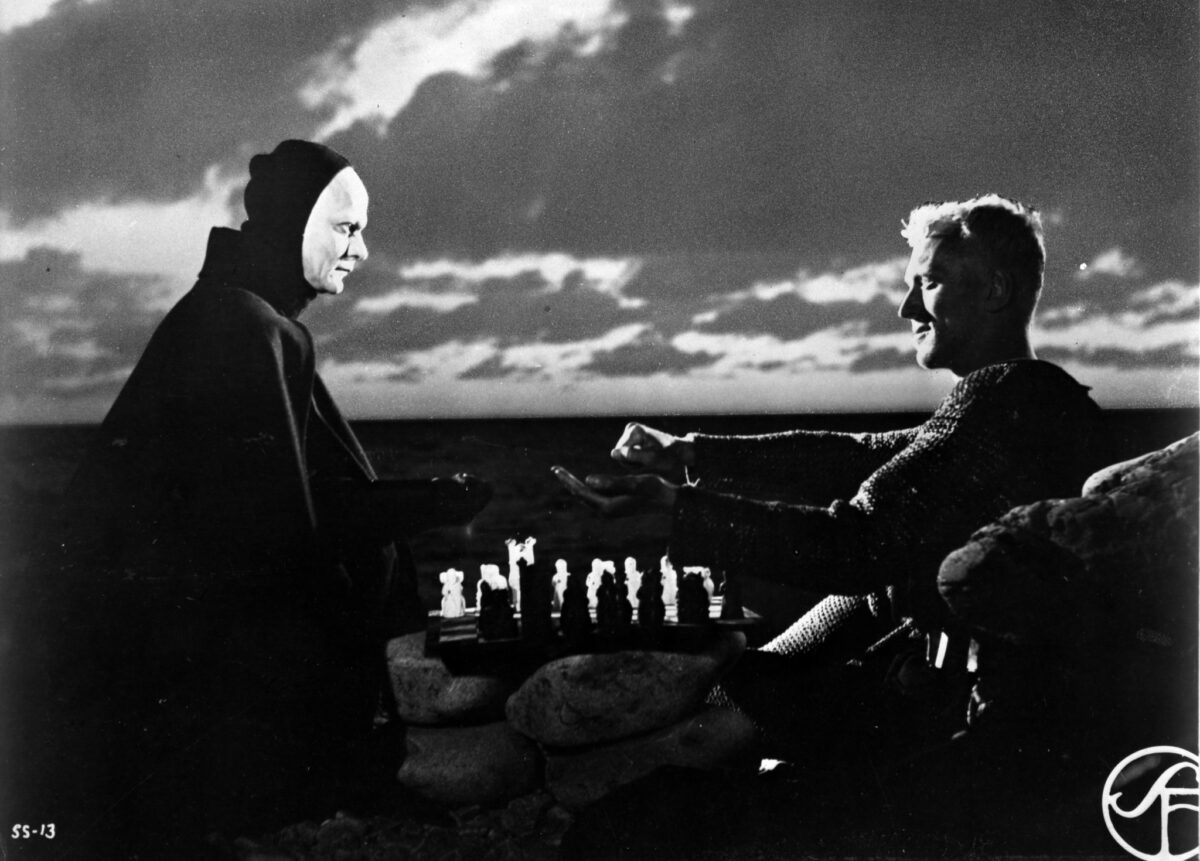In the annals of cinema history, Ingmar Bergman’s “The Seventh Seal” stands as a towering achievement, a film that transcends its time and place to explore timeless themes of mortality, faith, and the human condition. Released in 1957, this Swedish masterpiece continues to captivate audiences with its haunting imagery, profound philosophical musings, and exquisite craftsmanship. In this extensive review, we delve deep into the heart of “The Seventh Seal,” dissecting its narrative, themes, performances, and impact on cinema to uncover why it remains a quintessential work of art over six decades after its release.
Plot Synopsis:
Set in medieval Sweden during the Black Death, “The Seventh Seal” follows the journey of a disillusioned knight named Antonius Block (played by Max von Sydow) who returns from the Crusades to find his homeland ravaged by plague and religious turmoil. As Death (Bengt Ekerot) comes to claim his soul, Block challenges him to a game of chess, hoping to delay his inevitable fate. Alongside his squire Jöns (Gunnar Björnstrand), Block embarks on a quest for meaning and redemption, encountering a cast of characters representing various facets of humanity’s struggle with mortality and faith.
Themes and Symbolism:
At its core, “The Seventh Seal” is a meditation on the human condition, exploring existential themes such as the search for meaning in a world plagued by suffering and uncertainty. Bergman employs rich symbolism and allegory throughout the film, with Death serving as a central motif representing the omnipresence of mortality. The game of chess between Block and Death becomes a metaphor for the eternal struggle between life and death, faith and despair, as Block grapples with his mortality while seeking answers to life’s fundamental questions.
Performances:
The performances in “The Seventh Seal” are nothing short of extraordinary, with Max von Sydow delivering a tour de force performance as the tormented knight Antonius Block. Von Sydow’s portrayal captures the inner turmoil and existential angst of a man confronting his mortality, imbuing Block with depth, vulnerability, and humanity. Bengt Ekerot’s portrayal of Death is equally memorable, exuding a chilling aura of inevitability and detachment that haunts every frame of the film. The supporting cast, including Gunnar Björnstrand as Jöns and Bibi Andersson as the compassionate squire Mia, further elevate the film with their nuanced performances.
Cinematic Craftsmanship:
Bergman’s direction in “The Seventh Seal” is nothing short of masterful, with each frame meticulously composed to evoke a sense of foreboding and existential dread. The film’s stark black-and-white cinematography, coupled with its haunting score by Erik Nordgren, creates an atmosphere of haunting beauty that lingers long after the credits roll. Bergman’s use of symbolism, religious imagery, and allegory adds layers of depth and complexity to the narrative, inviting viewers to ponder the film’s deeper philosophical and existential themes.
Impact and Legacy:
Since its release in 1957, “The Seventh Seal” has left an indelible mark on cinema, inspiring generations of filmmakers and cinephiles alike with its profound insights into the human condition. The film’s exploration of existential themes and its visual and narrative innovation have cemented its status as a timeless classic, earning it widespread acclaim and recognition from critics and audiences worldwide. “The Seventh Seal” continues to be studied, analyzed, and celebrated for its enduring relevance and its ability to provoke thought and introspection in viewers.
Conclusion:
In conclusion, “The Seventh Seal” stands as a cinematic masterpiece of unparalleled depth and complexity, offering viewers a haunting and profound exploration of the human experience. Through its rich symbolism, evocative imagery, and powerful performances, Ingmar Bergman crafts a film that transcends its time and place to resonate with audiences on a universal level. Six decades after its release, “The Seventh Seal” remains a timeless classic, a testament to the enduring power of cinema to illuminate the darkest corners of the human soul and inspire contemplation and reflection in viewers.
